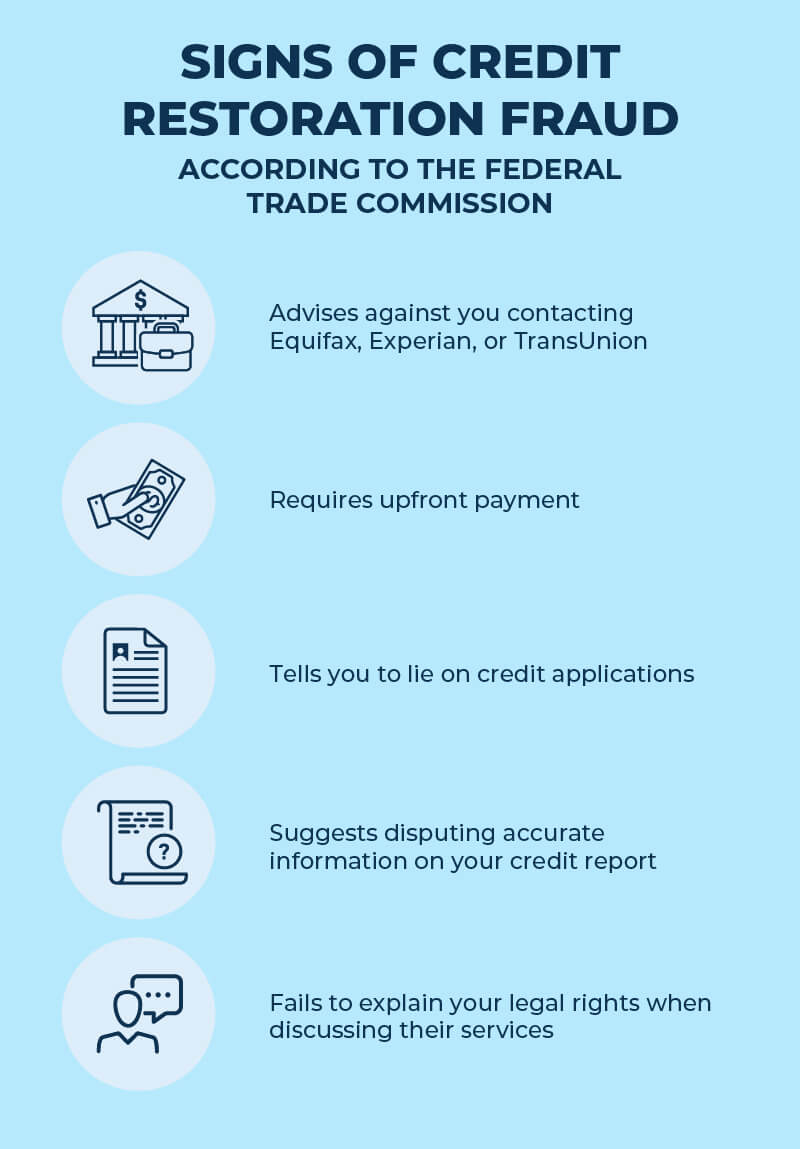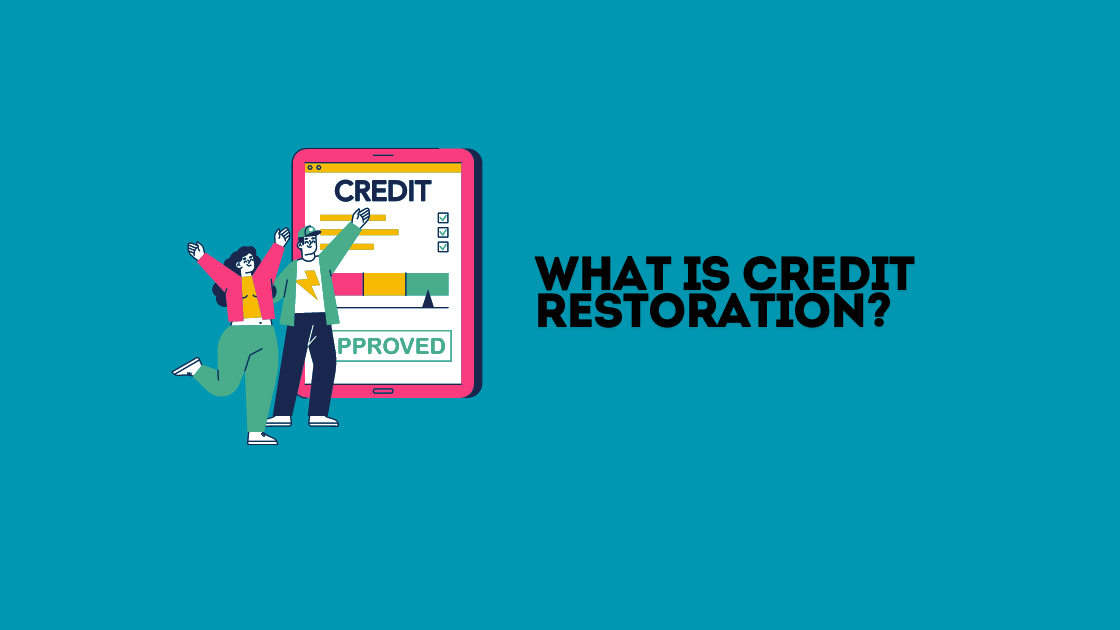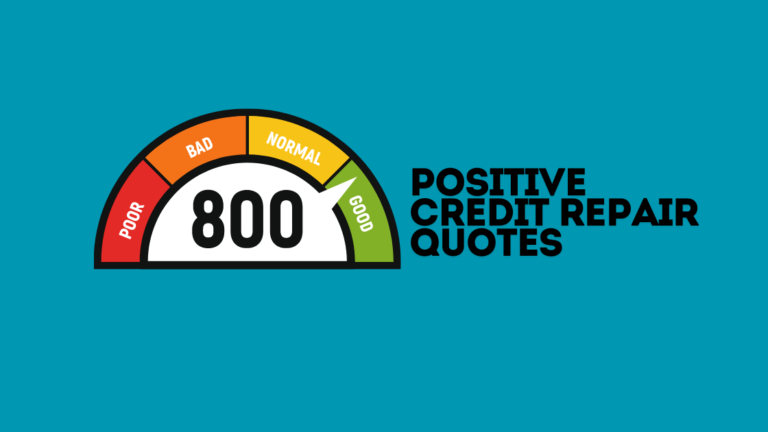What is Credit Restoration: Your Ultimate Guide
Credit restoration is the process of improving one’s credit score by addressing and rectifying errors on a credit report. This involves disputing inaccuracies and negotiating with creditors.
Credit restoration is crucial for individuals seeking to enhance their financial standing. A good credit score can open doors to better loan terms, lower interest rates, and increased borrowing capacity. The process typically starts with obtaining a credit report from major bureaus like Experian, TransUnion, and Equifax.
Identifying inaccuracies such as outdated information, incorrect account statuses, or fraudulent activities is essential. Once identified, disputes are filed with the credit bureaus or directly with creditors. Successful credit restoration can significantly impact your financial future, making it easier to secure mortgages, car loans, and even employment opportunities.
The Essence Of Credit Restoration
Credit restoration is a vital aspect of personal finance. It involves improving your credit score by addressing negative items on your credit report. This process can help you secure better loan terms and interest rates. Many individuals may attempt credit restoration on their own, but it can be a complicated and time-consuming process. In these cases, hiring a credit restoration business can be a beneficial solution. These businesses have the expertise and resources to effectively navigate the credit restoration process and help clients achieve their financial goals.
Defining Credit Restoration
Credit restoration means improving your credit health. This process can involve disputing incorrect entries on your credit report. It may also include negotiating with creditors to remove negative items.
Typically, people with poor credit scores seek credit restoration. The goal is to enhance their ability to borrow money. A better credit score opens doors to financial opportunities.
Importance In Personal Finance
Good credit is essential for financial stability. A high credit score can save you money on loans. It can also improve your chances of getting approved for credit cards. Better credit can even affect your job prospects.
Consider the benefits of credit restoration:
- Lower interest rates on loans
- Higher chances of loan approval
- Better credit card offers
- Improved insurance rates
Credit restoration helps you achieve these benefits. It involves a series of steps aimed at cleaning up your credit report.
| Credit Score Range | Category |
|---|---|
| 300-579 | Poor |
| 580-669 | Fair |
| 670-739 | Good |
| 740-799 | Very Good |
| 800-850 | Excellent |
Credit restoration aims to move you up the scale. It takes time and effort. But the financial rewards are worth it. After improving your credit score, you may qualify for better interest rates on loans and credit cards, saving you money in the long run. Additionally, you may become eligible for higher credit limits, providing greater financial flexibility. However, it’s important to stay diligent in managing your finances to avoid falling back into old habits that negatively impact your credit. And if you receive a debt collection letter, it’s crucial to address it promptly and work towards resolving the outstanding debt to protect your improved credit standing.
Credit Scores Demystified
Understanding credit scores can seem difficult, but it’s essential. A credit score affects many aspects of your financial life. Let’s break down what a credit score is and how it impacts your financial options.
Components Of A Credit Score
Your credit score is made up of several components. Each part affects your score differently. Below is a table that outlines the key components:
| Component | Percentage |
|---|---|
| Payment History | 35% |
| Amounts Owed | 30% |
| Length of Credit History | 15% |
| New Credit | 10% |
| Credit Mix | 10% |
Payment history is the most important. It shows if you pay your bills on time. Amounts owed is next. It looks at how much debt you have. Length of credit history checks how long you’ve had credit. New credit looks at recent credit inquiries. Credit mix considers the types of credit you have.
How Scores Affect Financial Options
Credit scores impact your financial opportunities. A higher score opens more doors. Below are some ways your score affects you:
- Loan Approvals: Higher scores mean better chances of getting loans.
- Interest Rates: Better scores lead to lower interest rates.
- Credit Limits: Higher scores can increase your credit limits.
- Rental Applications: Landlords often check credit scores.
- Job Applications: Some employers review credit scores.
A good credit score is important. It can save you money and give you more choices. Knowing your score and how to improve it is key.
Common Credit Report Errors
Understanding common credit report errors can help you restore your credit. Many people find mistakes in their credit reports. These errors can affect your credit score and financial health.
Identifying Report Inaccuracies
Credit report inaccuracies are common. You need to know how to spot them. Here are some typical errors:
- Incorrect personal information: Wrong name, address, or social security number.
- Duplicate accounts: Same account listed more than once.
- Incorrect account status: Accounts marked as open when they are closed.
- Errors in account balance: Wrong balance amount shown for an account.
- Inaccurate payment history: Payments marked late when they were on time.
Impact On Credit Health
Credit report errors can have a significant impact. Your credit score may drop due to these mistakes. This can affect your ability to get loans or credit cards. Here are some impacts:
| Error Type | Impact on Credit Health |
|---|---|
| Incorrect personal information | Confusion in identity verification |
| Duplicate accounts | Inflated debt amount |
| Incorrect account status | False credit utilization rate |
| Errors in account balance | Wrong debt-to-income ratio |
| Inaccurate payment history | Lower credit score |
Fixing these errors is crucial. It ensures your credit report is accurate. An accurate credit report can help you maintain good financial health.

Credit: www.moneymanagement.org
Steps To Initiate Credit Repair
Starting the credit repair process can seem daunting. Breaking it down into clear steps makes it manageable. This section will guide you through the essential steps to initiate credit repair. Follow these steps to restore your credit effectively.
Obtaining Your Credit Reports
Your first step is to obtain your credit reports. You can get a free report from each of the three major credit bureaus: Experian, Equifax, and TransUnion. Visit AnnualCreditReport.com to request your free reports. Reviewing these reports is crucial to understand your current credit status.
| Credit Bureau | Website |
|---|---|
| Experian | experian.com |
| Equifax | equifax.com |
| TransUnion | transunion.com |
Analyzing And Documenting Discrepancies
Once you have your credit reports, analyze them for errors. Common errors include incorrect personal information, duplicate accounts, or incorrect payment history. Document any discrepancies you find. Keep a record of each error with details such as:
- Account numbers
- Type of error
- Date of the error
Use this information to create a dispute letter for each error. Include all necessary details to support your claim. Send these letters to the appropriate credit bureau. Tracking your correspondence helps you stay organized. This ensures a smoother credit repair process.
Example Dispute Letter:
[Your Name]
[Your Address]
[City, State, ZIP Code]
[Date]
[Credit Bureau Name]
[Address]
[City, State, ZIP Code]
Dear [Credit Bureau Name],
I am writing to dispute the following information in my file. I have circled the items I dispute on the attached copy of my credit report.
Account Number: [Account Number]
Reason for Dispute: [Explain the error]
Please correct this information at your earliest convenience.
Thank you,
[Your Name]
Navigating The Dispute Process
Credit restoration involves correcting errors on your credit report. Navigating the dispute process is a vital step. This process helps to improve your credit score. Correcting errors can lead to better loan approvals and interest rates.
Filing A Dispute With Credit Bureaus
Start by obtaining a copy of your credit report. You can get it from the three major credit bureaus: Experian, TransUnion, and Equifax. Check for any inaccuracies or errors.
If you find an error, file a dispute with the credit bureau that has the incorrect information. Provide detailed information about the error. Include supporting documents that prove the mistake.
Credit bureaus typically allow online, mail, or phone disputes. Always keep a copy of your dispute and any correspondence. This documentation will be useful for follow-ups.
| Credit Bureau | Dispute Method | Contact Information |
|---|---|---|
| Experian | Online, Mail, Phone | Experian Dispute Center |
| TransUnion | Online, Mail, Phone | TransUnion Dispute Center |
| Equifax | Online, Mail, Phone | Equifax Dispute Center |
Engaging With Creditors Directly
Contact the creditor who reported the incorrect information. Explain the error and provide evidence supporting your claim.
Request that they correct the information with the credit bureaus. Follow up with the creditor until the issue is resolved.
Keep a record of all communications with the creditor. This will help if you need to escalate the issue.
If the creditor agrees to correct the mistake, they will notify the credit bureaus. The bureaus will then update your credit report.
Engaging directly with creditors can expedite the dispute process. It ensures that the error gets corrected quickly.
- Identify the error on your credit report
- Contact the creditor with supporting documents
- Request the correction and follow-up
- Keep all communication records

Credit: www.self.inc
Legal Rights And Credit Repair
Understanding your legal rights is crucial for effective credit repair. Laws protect you from unfair practices. Knowing these laws can help improve your credit score.
Understanding The Fair Credit Reporting Act (fcra)
The Fair Credit Reporting Act (FCRA) is a key law. It regulates how credit information is collected and used. This law ensures accuracy and privacy.
Under the FCRA, you have the right to:
- Access your credit report.
- Dispute incorrect information.
- Have outdated information removed.
- Be notified if information in your report is used against you.
Request a free credit report once a year from each credit bureau. Check for errors and dispute them if needed.
Leveraging Consumer Protection Laws
Several laws protect your credit rights. Knowing these can aid in credit repair.
| Law | Protection |
|---|---|
| Fair Credit Billing Act (FCBA) | Dispute billing errors on credit accounts. |
| Truth in Lending Act (TILA) | Receive clear information on credit terms. |
| Equal Credit Opportunity Act (ECOA) | Protection against credit discrimination. |
Use these laws to challenge unfair practices. This can help in cleaning up your credit report.
Diy Vs. Professional Credit Repair Services
Credit restoration can be a daunting task. Deciding between DIY or professional credit repair services requires careful consideration. This section explores both options, helping you make an informed choice for your financial health.
Pros And Cons Of Diy Credit Repair
DIY credit repair involves taking control of your credit issues. It’s a hands-on approach that can be rewarding yet challenging.
| Pros | Cons |
|---|---|
|
|
Choosing A Reputable Credit Repair Company
Opting for a professional service can simplify the credit restoration process. Finding a reputable credit repair company is crucial.
- Research: Look for reviews and testimonials.
- Credentials: Verify certifications and accreditations.
- Transparency: Ensure clear pricing and service details.
- Customer Service: Responsive and helpful support is key.
Professional services offer expertise and convenience. They can handle complex issues and provide personalized advice. Ensure the company is trustworthy and has a proven track record.
Maintaining And Building Healthy Credit
Credit restoration is a crucial step toward financial health. But maintaining and building healthy credit is just as important. After restoring your credit, you need to keep it in good shape. This ensures long-term financial stability and access to better loan terms. Let’s explore some best practices and strategies to help you maintain and build healthy credit.
Best Practices For Credit Maintenance
Maintaining healthy credit involves consistent efforts and smart financial decisions. Here are some best practices:
- Pay Bills on Time: Late payments can harm your credit score.
- Keep Credit Utilization Low: Aim to use less than 30% of your credit limit.
- Monitor Your Credit Report: Regularly check for errors or fraudulent activities.
- Avoid Opening Too Many Accounts: Each application can lower your score.
- Maintain Long-Term Accounts: Longer credit history boosts your score.
Strategies For Building Credit Post-restoration
After credit restoration, focus on building a stronger credit profile. Here are some effective strategies:
- Apply for a Secured Credit Card: These cards are easier to get and help build credit.
- Become an Authorized User: Ask a trusted person to add you to their account.
- Use Credit Wisely: Make small purchases and pay them off monthly.
- Take Out a Credit-Builder Loan: These loans are designed to help improve your credit.
- Join a Credit Union: They often offer favorable terms to rebuild credit.
Maintaining and building healthy credit requires dedication and smart choices. By following these best practices and strategies, you can achieve and sustain a strong credit profile.
Advanced Tactics For Financial Freedom
Embarking on the journey of credit restoration can be daunting. Advanced tactics can make this journey smoother. By mastering debt management and leveraging credit, financial freedom becomes attainable. Let’s explore how these advanced strategies can empower you.
Debt Management And Reduction
Effective debt management is the cornerstone of credit restoration. It involves creating a budget, tracking expenses, and prioritizing debts.
- List all your debts.
- Identify high-interest debts first.
- Create a repayment plan.
Consider negotiating with creditors. Many are willing to settle for a lower amount. Debt reduction can also be achieved through consolidation. Consolidate multiple debts into a single loan with a lower interest rate.
| Debt Type | Interest Rate | Monthly Payment |
|---|---|---|
| Credit Card | 15% | $200 |
| Personal Loan | 10% | $150 |
| Mortgage | 5% | $1000 |
Leveraging Credit For Wealth Building
Once debt is under control, focus on leveraging credit. Use credit wisely to build wealth. This involves strategic borrowing and investing.
- Maintain a good credit score.
- Use credit cards with rewards.
- Invest in assets that appreciate.
Invest in stocks, real estate, or a business. Good credit can help secure loans for these investments. This can lead to significant wealth growth over time.
Credit Restoration Success Stories
Credit restoration can change lives. Imagine turning bad credit into a positive score. Many people have achieved this. Their stories inspire hope and determination.
Real-life Examples Of Credit Turnarounds
Meet Jane. She faced medical bills and lost her job. Her credit score dropped. Jane worked with a credit restoration service. In 18 months, her score rose by 150 points. Now, she owns a home and runs a small business.
John’s story is different. He had issues with student loans. His credit was poor. He joined a credit counseling program. Within two years, he improved his score by 200 points. John now drives a new car with a low-interest loan.
| Name | Issue | Time Taken | Score Improvement |
|---|---|---|---|
| Jane | Medical Bills, Unemployment | 18 months | +150 points |
| John | Student Loans | 24 months | +200 points |
Long-term Benefits Of Restored Credit
Restored credit offers many long-term benefits. Here are some key advantages:
- Lower Interest Rates: You save money on loans.
- Better Job Opportunities: Many employers check credit scores.
- Improved Living Conditions: Better credit means better housing options.
- Peace of Mind: Less stress about finances.
Consider these points for your financial future. A good credit score opens many doors. Invest in your credit restoration journey today.

Credit: www.nfcc.org
How Does Rebuilding Credit Fit Into the Credit Restoration Process?
Rebuilding credit is a crucial step in the credit restoration process, helping individuals regain financial stability. To rebuild credit with these proven steps, focus on timely payments, reducing debt, and maintaining low credit utilization. Responsible financial habits and strategic planning can gradually improve credit scores, opening doors to better financial opportunities.
Frequently Asked Questions
1. How Long Does Credit Restoration Take?
Credit restoration typically takes 3 to 6 months. Severe cases may take up to a year. Progress varies based on individual situations.
2. Is It Worth Paying Someone To Fix Your Credit?
Yes, paying a professional to fix your credit can be worth it. Experts can efficiently handle disputes and negotiations. They save you time and potentially improve your score faster. Always research and choose a reputable service.
3. Is Financial Restoration Worth It?
Yes, financial restoration is worth it. It improves credit scores, reduces debt, and enhances financial stability. It also provides peace of mind and better financial opportunities.
4. How Do You Restore Your Credit?
To restore your credit, pay bills on time, and reduce debt. Review credit reports for errors and dispute inaccuracies. Avoid new credit inquiries and maintain low credit card balances. Consider a secured credit card or credit-builder loan to rebuild your credit history effectively.
5. What Is Credit Restoration?
Credit restoration is the process of improving a damaged credit score by addressing and resolving negative items on a credit report.
Conclusion
Restoring your credit can unlock many financial opportunities. It involves correcting errors and adopting better financial habits. Understanding credit restoration empowers you to take control of your financial future. Start your journey today to improve your credit score and enjoy the benefits of a healthier financial life.







